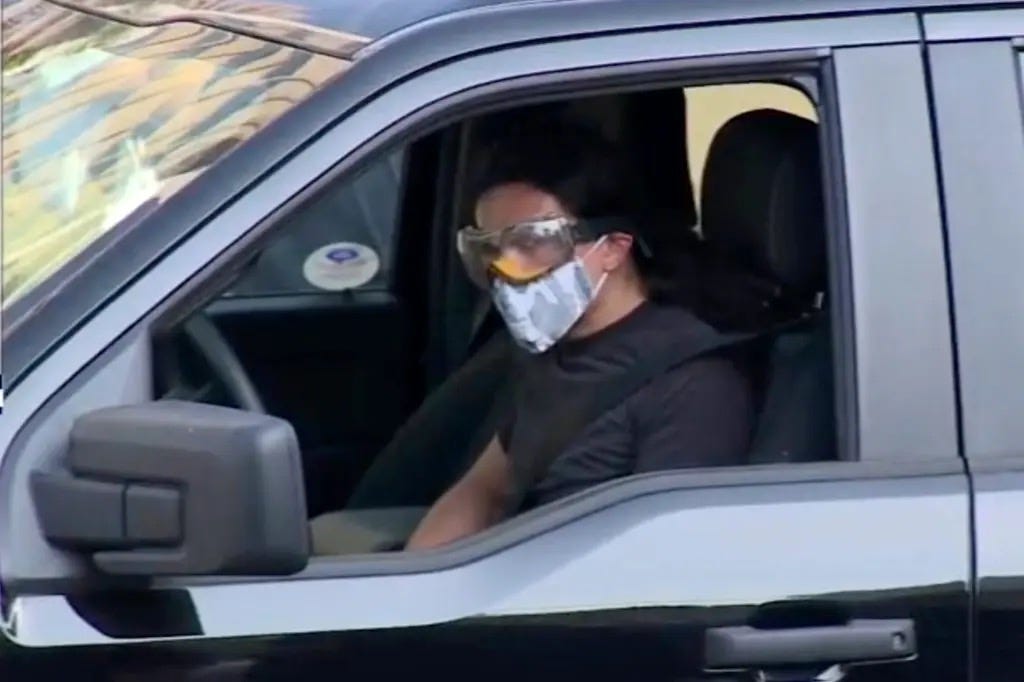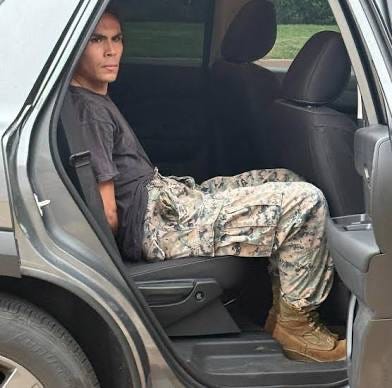Blown Doors and Broken Cases: How the Feds Are Overcharging—and Quietly Backtracking—in LA’s Immigration Crackdown
Federal prosecutors in Los Angeles are overcharging immigration protesters, then quietly backing down. But the message is clear: you don’t have to be guilty to be punished. You just have to be in the way.
By Nick Valencia | July 30, 2025
LOS ANGELES — The blast came without warning.
At dawn on a quiet street in Huntington Park, federal agents detonated an explosive to breach the front door of a family home. Shards of glass rained down. Inside were small children and their mother, who screamed in panic as tactical agents stormed through the smoke.
“They didn’t have to do this,” Jenny Ramirez later told reporters. “You scared my son, my baby, and myself.”
The man they were looking for, 32-year-old Jorge Sierra Hernandez, wasn’t even home. A U.S. citizen, Hernandez would later call from a different location and turn himself in—arrested on charges of damaging government property and assaulting a federal officer. Now, a month later, the case against him has been quietly dropped.
This is not an isolated incident.
Federal prosecutors under U.S. Attorney Bill Essayli have now dismissed at least 10 high-profile cases tied to recent immigration enforcement protests and operations in Los Angeles, as The Guardian first reported on Monday. Another involved Alejandro Orellana, who was accused in June of distributing face shields to demonstrators protesting ICE outside a downtown government building. Orellana was arrested, charged, and paraded as an example of "interference with federal operations." But behind the scenes, prosecutors reportedly knew the case was flawed from the start—and proceeded anyway.
A Bloomberg Law investigation revealed that Essayli ignored warnings from senior officials in his own office that the Orellana case lacked merit. “They didn’t see a charge,” reporter Ben Penn said in an interview with KCAL News. “Essayli overruled them.”
Out of 26 people charged, 3 took plea deals and at least 10 have been dropped, according to The Guardian.
The federal overreach appears increasingly political—and possibly retaliatory.
The raid on the Hernandez home, for example, stemmed not from new evidence, but from a weeks-old incident involving a Border Patrol vehicle. Law enforcement sources say agents suspected Hernandez had interfered with a different enforcement operation in Maywood, a neighboring city. In other words, this appeared less like standard procedure and more like retribution.
Even after dismissing charges, the Justice Department has kept its options open. The Hernandez case was dropped “without prejudice”—a legal maneuver allowing the feds to refile at any time. Legal analysts say this strategy isn’t about justice. It’s about silence.
“One reason the government may dismiss cases this way is to keep people from talking,” said NBCLA analyst Royal Oakes. “Their lawyers are probably telling them to clam up.”
The Los Angeles Times recently reported that grand juries are declining to indict roughly four out of five cases brought against protesters and alleged “interference” suspects tied to ICE operations. In many instances, charges seem designed to intimidate first, then evaporate under scrutiny. The numbers tell the story: more than 50 federal complaints filed since June, but few resulting in indictments or convictions.
Yet even as the legal scaffolding collapses, the human cost lingers.
The sound of that early morning explosion still haunts Jenny Ramirez. “The loudest blast of my life,” she said. Her front door is gone. Her children are traumatized. And her partner was booked into federal custody over a case that now, on paper, never happened.
Meanwhile, federal officials insist this is all part of a larger plan. “Most of the cases are resolved by plea agreement,” Essayli said recently on Today in LA. “There are various reasons how a case proceeds through the criminal justice system.”
His critics say ironically, Essayli is the child of immigrant refugees from the Lebanon war in the 80s. And they point out that he is a temporary appointment whose time began April 2 and comes to an end in August. Which begs the question—in the few months he’s been at the helm, has he been trying to bring more federal complaints in his limited time to raise his profile?
To those on the receiving end of these prosecutions, the message is clear: You don’t have to be convicted to be punished.




